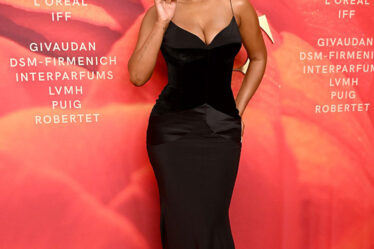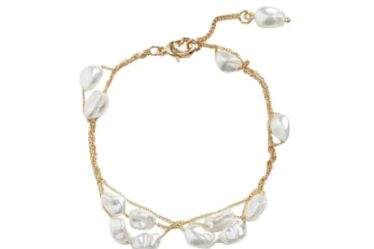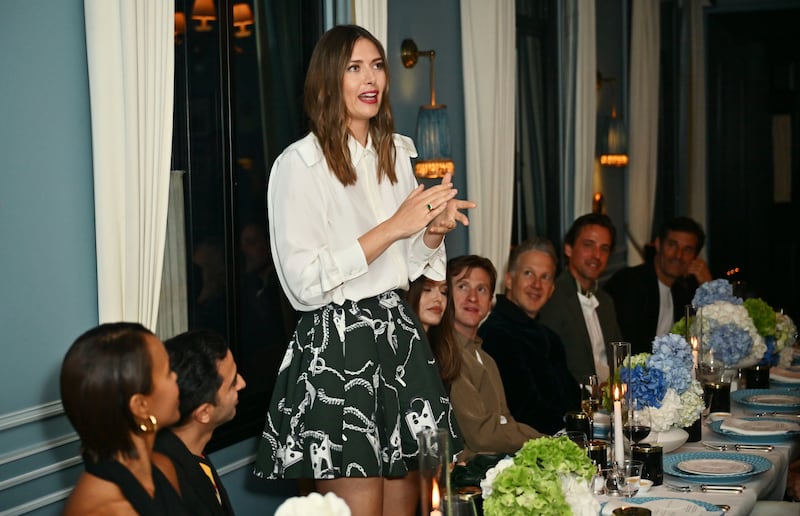
In celebration of the 20th anniversary of former world No. 1 tennis star Maria Sharapova’s Wimbledon win, The Business of Fashion, together with Aman Essentials, held an intimate dinner in London’s Mayfair.
Co-hosted by BoF’s founder and CEO Imran Amed, Aman Essentials CEO Kristina Romanova and tennis star Maria Sharapova, the dinner was attended by a roster of activists, athletes, creatives and change-makers from a wealth of industries. Guests included sporting icon Billie Jean King, activists Malala Yousafzai and HRH Princess Beatrice of York, and creative leaders and artists like Rita Ora, Taika Waititi and Sabrina Elba.
Actors Idris Elba, Sonam Kapoor and Joel Edgerton were in attendance, alongside Burberry’s creative director Daniel Lee, Jimmy Choo creative director Sandra Choi and Emilia Wickstead, designer of her eponymous label.
Also in attendance was Aman chairman Vlad Doronin, as well as Christine Centenera, Adebayo Bolaji, Charli Howard, Tish Weinstock, Mark Webber, Andrey Andreev, Anand Ahuja, Nikhil Mansata, Jefferson Hack, Susie Lau, Max Eisenbud, Ashley Adjaye, Vikram Kansara and Robin Mellery-Pratt.
Reflecting on Sharapova’s Wimbledon win — her first grand slam singles title and one of 36 career titles — guests were asked to consider their resilience, the impact of their own achievements, and how they leverage those achievements to create positive impact and change.
Below, BoF shares some of their reflections and insights from the dinner.
Maria Sharapova, Former World No. 1 Tennis Player
‘Accept there are going to be rough patches’
“I enjoy reflecting on the past, but I’m also someone that enjoys looking forward and looking ahead. And that’s how I treated my career — no matter how many amazing moments I had, I had to find ways to be inspired about what’s coming.
“I think I realised from a young age that tennis was more than a sport — I had a chance to have a platform, a voice and an opportunity to be curious and learn from other people. I have worked with — and still work with, to this day — some amazing brands that have taught me critical business skills. I’ve always wanted to make the most of those opportunities.
“One of my biggest learnings is just accepting that there are going to be rough patches. There are so many distractions in today’s world that maybe allow us to constantly seek perfection. But I think there’s something really beautiful about hardships — because they teach you lessons that success doesn’t. They helped me get to where I am today.”
Kristina Romanova, CEO of Aman Essentials
‘Maintain perspective and pay it forward’
“As a mother of two girls, I believe that my personal achievements will inspire and empower them to become dream chasers. I came from a small town and always dreamt big. Which meant I needed to embrace the concept of high risk for high reward.
“I reminded myself that every small step counts, even on the toughest days, because the process itself leads to meaningful progress and real action. Today, I remain committed to the pillars of Aman, emphasizing the importance of holistic wellbeing and a balanced daily life. Amid the distractions and noise, we face today, staying true to oneself is crucial, and I strive to instill this value in my daughters.
“As a female CEO, I am dedicated to empowering other girls to see that they too can achieve great things. By staying focused and true to our values, we can create lasting change and inspire the next generation to pursue their dreams with passion and determination. It’s essential to maintain perspective and pay it forward.”
Billie Jean King, Former World No. 1 Tennis Player
‘Hear from everyone at the table’
“Things I always dreamed about and worked for in women’s sports are starting to happen. I’m still working within the space — my partner Ilana and I just started a women’s professional ice hockey league, and we continue to work on the Billie Jean King Cup. We work with sponsors, we work with business, we just work — constantly.
“Women’s professional tennis didn’t even exist until the start of the 1970s. Before that, we were amateurs. We only got about $14 a day. I wanted to be a pro for the men and for the women. Today, we need more women on boards, we need more women as CEOS — inclusion work is so key. We lose out if we don’t hear from everyone at the table.
“And the work never stops. I really do thank God I’ve lived long enough to start to see the shift in tennis. What’s so special about Maria Sharapova is how she’s leveraged her fame and her skills within business. Athletes are no longer just endorsing things — they are part of the company. They own it. They have skin in the game — they wouldn’t let us do that back in the old days! Now, I’m going to be a part of that.”
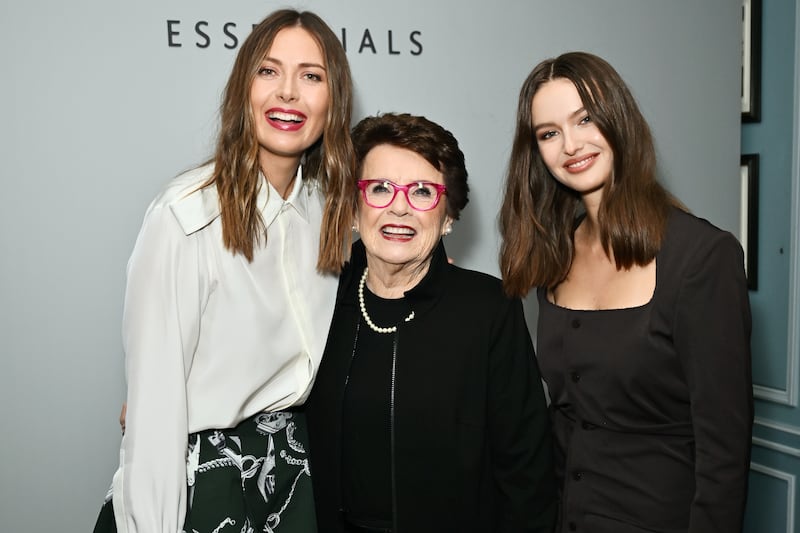
HRH Princess Beatrice of York
‘Look beyond the barrier’
“As the mother of a young girl, opportunities for women — particularly in leadership roles — is something that I’m constantly thinking about and working to champion. I’ve worked in technology for the better part of my career, I try to find opportunities within that and within my unusual world to be able to channel that message and to talk about women in tech. The gender bias that is emerging within AI, for instance.
“I work a lot with the UN on their The International Telecommunication Union (ITU), which is all about digital inclusion. For me, tech is all about enablement. We just need to work to make sure that we have space and jobs and role models for women to be able to see themselves in that space.
“I would encourage everyone to think about looking beyond the barrier. Advice I’ve found useful in the past is that it is not necessarily about making noise, but it is about just having the confidence to look beyond the barrier — especially around job descriptions and skill sets, because many are still not written with truly inclusive mindsets. There’s always another layer to something which can inspire you to think differently.
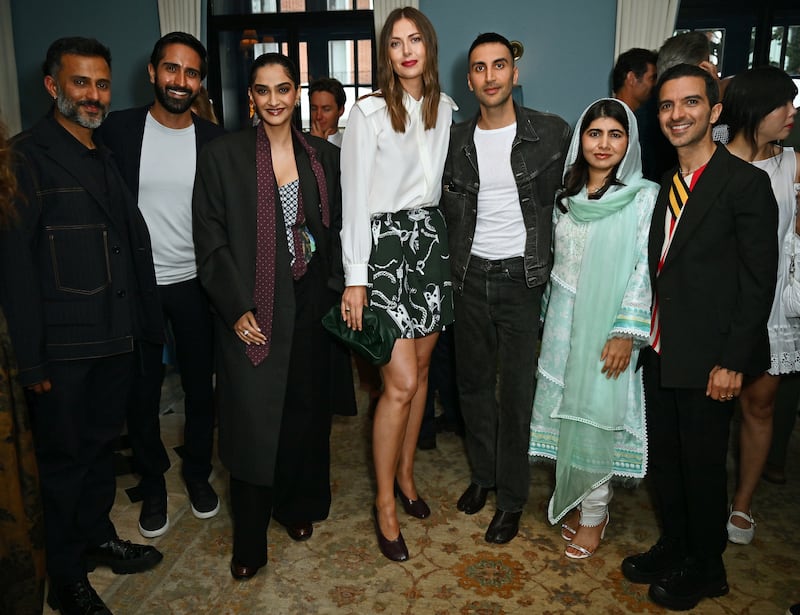
Adebayo Bolaji, Multi-Disciplinary Artist and Actor
‘Keep learning and asking questions’
“I always go back to consider, ‘what is my vision?’ For change to happen and to achieve your vision, there always has to be an element of friction.
Resilience has to come into play. I acknowledge those moments that have required me to be resilient, as it means that I’ve had to answer a question on how I had to grow and evolve. For me personally, those moments speak to this idea of not staying in the same space, and being open to the next phase of growth and learning.
There’s a lot we can learn from sport here. Opposition doesn’t mean that you should stop. Rather, it helps you recognise the potential of others. It’s about adopting a position of humility. We are constant students — let’s keep learning and asking questions.”
Mark Webber, Former Formula One Race Car Driver and Grand Prix Winner
‘Remember that you are a figurehead’
“Throughout my career as a race car driver, my professionalism on the track has always been hugely important, and something I’ve been keen to establish. But ultimately, you have to remember that you’re a figurehead. People are watching you week in, week out. You have to consider how you can use that influence and opportunity in a positive way.
“It’s why, back in Australia, I dedicated a lot of time to charity work. Specifically with children with leukaemia, working to build treatment centres and accommodation in more rural areas for them and for their parents. When you have a profile or a position of influence, it’s an incredible thing to be able to leverage.
“As an athlete, you feel that your specialism is niche. But these specialisms become global sports — everyone around the world can watch us, can associate with our success, are with us on those journeys. We have the responsibility to push that focus back into positive causes.”
This is a sponsored feature paid for Aman Essentials as part of a BoF partnership.

